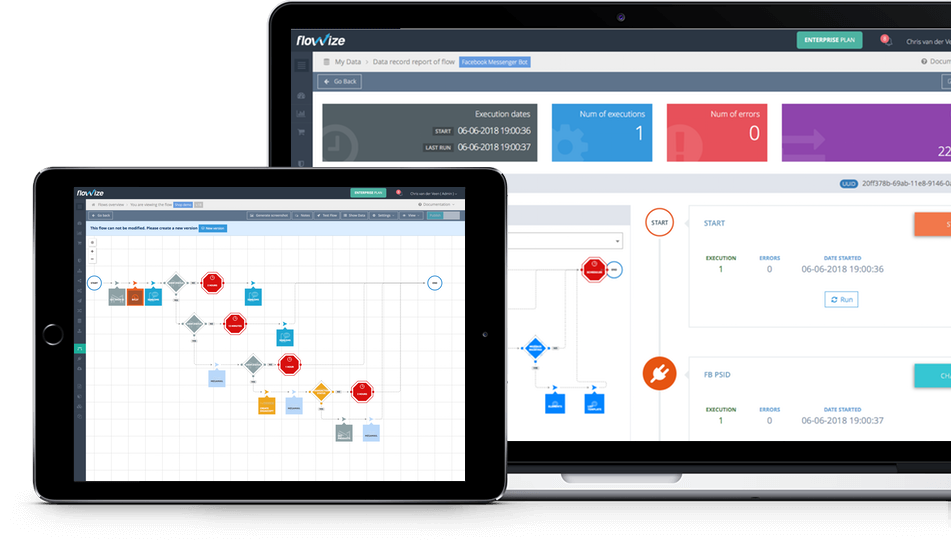
The potential of comprehensive workflow automation platform for your organization is hard to overstate; it can provide optimization, focus, cost savings, time to market efficiencies, and can unlock new opportunities and insights.
Integrating data, automating workflows and productizing client interactions is time consuming, repetitive work for coders and product developers. Organizations are better off if their resources can focus on revenue generating product development, and on their core business.
Moving into the digital economy or integrating data, automating workflows and productizing client interaction, and staying on top of the latest digital developments are vexing challenges for any organization. Maintaining a digital infrastructure is complex, as new data integration requirements appear, new product development targets need to be met, data storage optimization challenges escalate, and the need for qualified team members explode.
Organizations large and small realize the need and the potential for digitization, and consistently name the inability to experiment, the inhibition of legacy systems, the inability to work across silos, the lack of talent, and the lack of budget as the greatest barriers to digital transformation.
This is where workflow automation and IT integration platforms can be invaluable. The ideal workflow automation solution enables its users to integrate diverse data sources – including legacy systems; enable testing and versioning; save time and costs on actual coding needs; provide insights on performance, success and capabilities – and thereby unlock new opportunities; enhance organizational cooperation, and; enhance the focus on core strengths. Not to be ignored, workflow automation solutions can provide organizations with independence from data storage solutions, like CRM and analytics solutions: you get to decide what data gets shared with what application, and under what conditions. A strong workflow automation solution will deliver control, expedience, flexibility, and freedom.
The market space for workflow automation solutions is fragmented. Huge organizations like Salesforce, Oracle, IBM, DELL, and Microsoft have their own workflow automation solutions. Marketing platforms like HubSpot have their own workflow automation solutions as well. Then there are tons of workflow automation apps that focus on simple workflow tasks, such as calendaring reminders, payment reminders, lead processing, and customer support processes. Some of these solutions focus on marketing, others focus on data analytics, others are built to enhance the value of other core products (CRM). Then there are solutions to assist with tasks, and platform solutions like Flowize, which enable their customers to build data-source-agnostic communication and goal-oriented flows. To find out what solution works best for your organization, it helps to ask the following questions:
- What process do I want to automate, and for what reason;
- What savings am I trying to realize;
- What are my core strengths, and how will this help me focus and enhance them;
- How will this platform help me with digitization and testing;
- Can I build my own flows for different purposes and organizational needs, and how much support will I need;
- What insights will its dashboard provide me;
- Is it an intuitive, easy-to-use platform;
- Can I execute the flows in real time, or does it wait to be told what to do;
- Can I integrate the latest apps as well as legacy systems;
- How will it enhance my organizational and product agility;
- Will it enhance my data independence, or make me more dependent;
- How far am I with my own digitization, and will this simplify or complicate my current progress;
- Is it a cost-effective SaaS-based platform; and
- Can the provider work through workflow mapping with me?
Comprehensively evaluating workflow automation platforms enables you to select a partner who values your processes and data, and helps you overcome your organizational challenges.
The core value of a comprehensive workflow automation solution is simplification, ‘no-code’ accessibility, simple integration, and easy to manage workflows. What this delivers to businesses is agility, control, expedience, cost savings and the opportunity to focus on core strengths. Organizations don’t need to build their own digital revolution – they have the luxury to utilize the tools already available.
What are your digital revolution challenges and how do they affect your organization’s bottom line?

